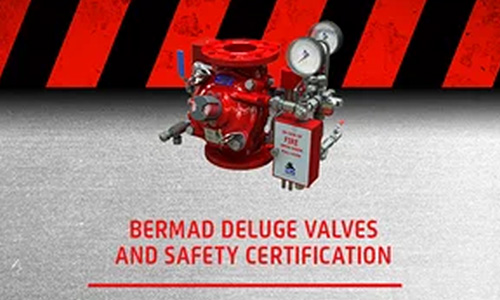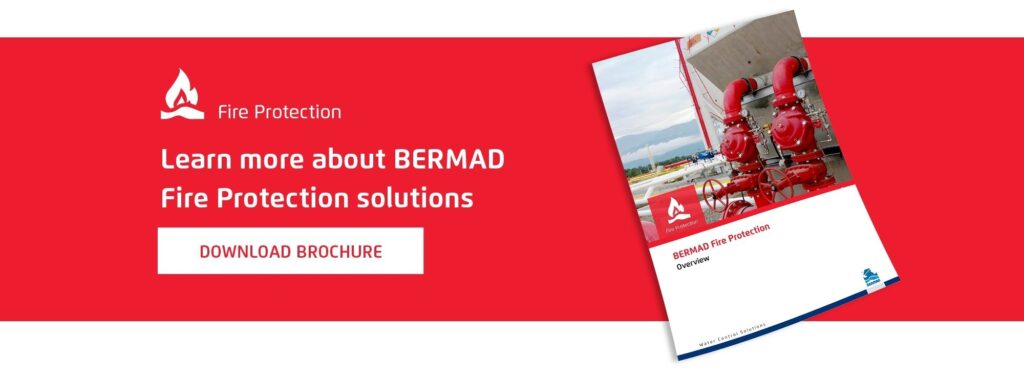How to Select the Right Deluge Valve?
Selecting, Sizing, and Positioning Fire Protection Valves with BERMAD’s 3D…
Did You Update BERMAD Connect Already? Check It Out
Update BERMAD Connect Today! Check It Out
BERMAD > Knowledge Center > Blog > Deluge Valve Leakage: UL-260 vs. ANSI/FCI 70-2
By
From an engineering point of view, almost all valves leak by some measure. Valves may be said to be “bubble tight” or “zero leakage,” but in actuality most standards will let small amounts of water through. Every fire protection valve is subject to regulation by government, corporate, and/or other agencies. Valves must comply with safety standards as defined by established safety organizations such as the National Fire Protection Association (NFPA) or UL (Underwriters Laboratories).

Deluge valves are typically required to comply with UL-260. But what does that really mean?
Is one UL-260-compliant valve just as good as another? Or can there be significant differences from one to the next? And what is the difference between this standard and TSO (Tight Shut Off)?
A deluge valve is a type of fire protection valve which features a piping array with open nozzles for high flow capacity. A deluge valve that leaks is not considered to be the major crisis that a leaky fuel valve might be, where every drop can cause fire or environmental issues. The safety standards reflect terms that specify the allowable leakage of that classification.
For example, the requirement for UL-260 standard reads:
“The manufacturer shall check each deluge valve for leakage past the water seat…The valve shall not show leakage in excess of 0.1 fluid ounce per minute which is about 3 mliter/minute.”
With that being said, fire water leakage is better to avoid, especially in freezing conditions, in which water can narrow the cross-section area of the pipe.
BERMAD deluge valves are designed in compliance with the UL-260 safety standard for dry pipes and deluge valves for fire-protection services. Moreover, BERMAD has set its acceptance criteria much higher than the UL-260 standard requires.
Our internal standard requires tight shut off (TSO) for our deluge valves. This means that the valve shuts off completely, allowing not even a drop of water to escape. BERMAD valves are tested for leakage at two levels of line pressure: at the maximum rating for the valve and at the minimum pressure level (1.5 bar). This ensures that in both cases the valve will remain closed. TSO goes above and beyond the standard to ensure leak free valve performance for optimal safety, operation and maintenance of your fire protection system.
UL-260 is a widely used standard for deluge valves. By default we routinely design our deluge valves to meet and exceed the UL-260 standard as safety valves. However, some of our customers are more familiar with the ANSI/FCI 70-2 standard for valve seat leakage.
There are 6 seat leakage classifications defined by this standard. Class Vl is known as a Soft Seat classification. Soft Seat Valves are those where the seat, shut-off disc or both are made from some kind of resilient material such as Teflon, which is what we use in our valve design. However, there are few variations, which impact the testing process:
These testing differences necessitate a different approach in the testing methods for ANSI/FCI 70-2 which can impact price and lead time. However, UL-260 is a more suitable approach for safety valves and is a part of BERMAD’s standard testing routine.
To learn more about BERMAD’s valve safety standard compliance, or for assistance in selecting the correct fire protection valve for your application, click here to contact a BERMAD Fire Protection representative in your region.


We got your email. Now, let’s make it personal...
